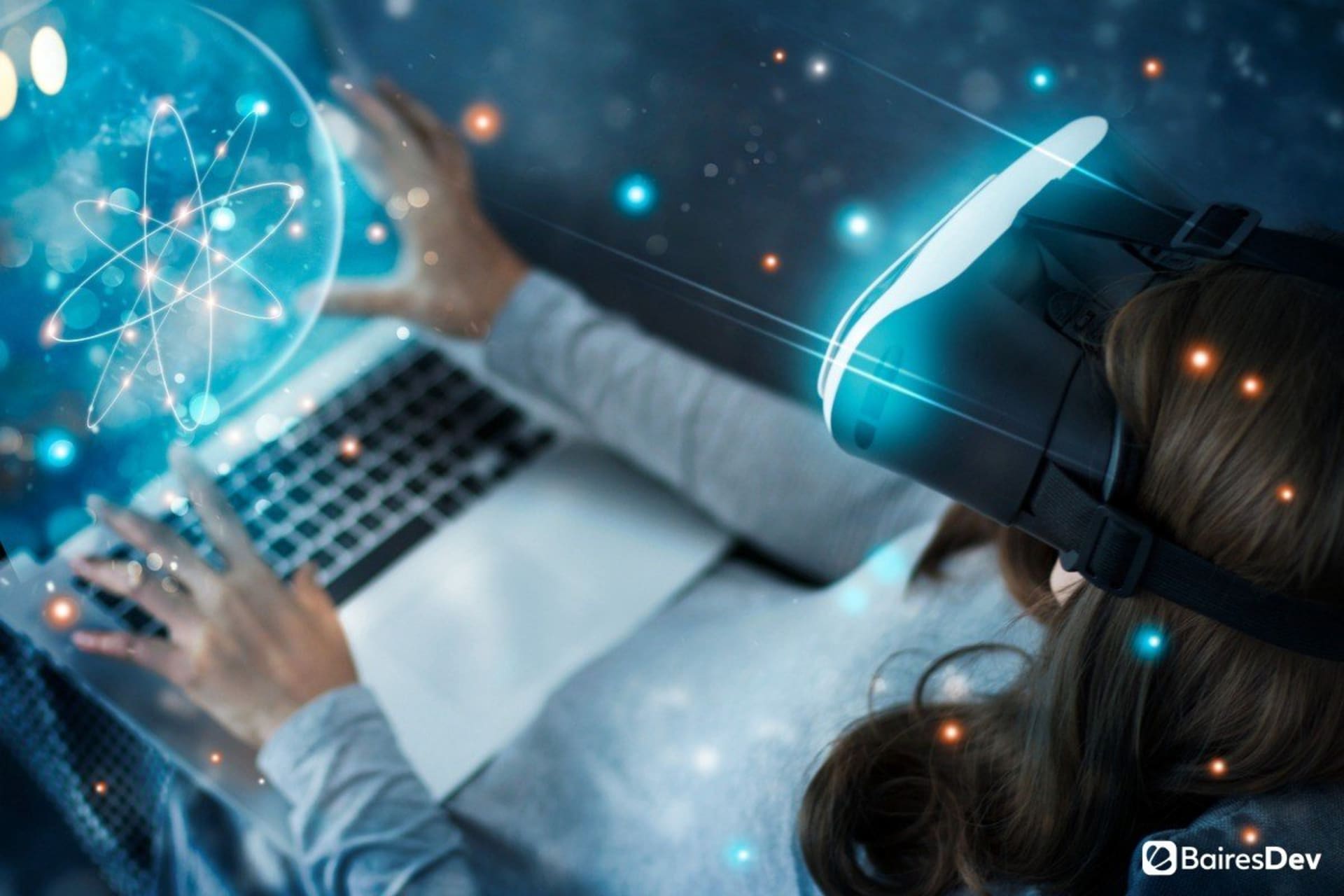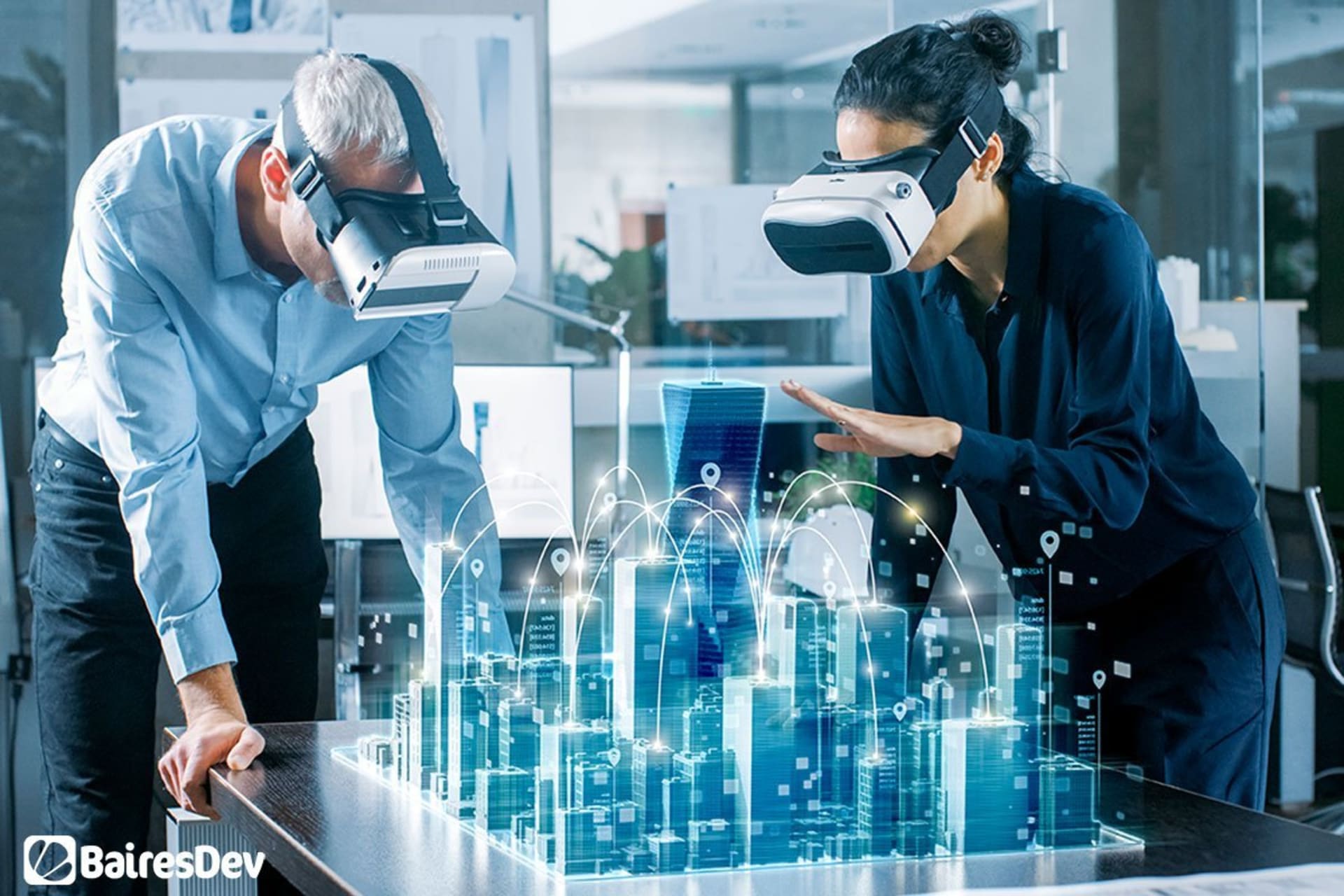Virtual Reality Development Company
Our Virtual Reality development services already power dozens of active engagements. We typically land our teams within 2 weeks, so you can start shipping top-quality software, fast.
500+ companies rely on our top 1% tech talent.
Virtual Reality Development Services We Provide
Custom Virtual Reality App Development
Create immersive experiences for your app users. Using technologies such as Unity and Unreal Engine, our developers ensure your VR apps stand out with an engaging virtual environment and interactive simulations.
VR Training & Simulation Solutions
Transform learning and skill development through immersive VR experiences. With platforms like Unity3D and Unreal Engine, we design interactive VR modules that replicate real-world scenarios. This enables hands-on training in a risk-free environment.
Multi-platform VR Integration & Deployment
Seamlessly extend your VR software across various platforms. We handle multi-platform VR integration and deployment, ensuring compatibility with major VR devices like Oculus Rift, HTC Vive, and more. With comprehensive cross-platform expertise, we make your VR content accessible to a diverse audience on numerous devices.
VR Exhibitions & Virtual Event Management
Create immersive virtual settings for exhibitions, trade shows, and events of all kinds, providing attendees with engaging and interactive experiences. Using tools like Unreal Engine, we craft visually engaging and user-friendly VR spaces that captivate live audiences.
VR User Experience Design & Usability Testing
Boost user engagement and satisfaction with VR user experience design and usability testing. Our UX designers create intuitive interfaces and facilitate immersive interactions. Conducting rigorous usability testing, using tools like UsabilityHub, our testers ensure your VR application delivers a seamless and enjoyable user experience.
VR for Real Estate & Architectural Visualization
Facilitate VR experiences that allow clients to virtually explore properties even before they’e even built. Using tools like Autodesk Revit and Unity3D, our VR applications provide a realistic and immersive preview of property designs.
Enterprise VR Solutions for Collaboration & Remote Work
Enhance collaboration and remote work capabilities with enterprise VR solutions for teams based anywhere. We create VR environments that facilitate seamless communication and teamwork, particularly among remote teams. Leveraging tools like Spatial and Glue, we help you deliver VR software that empowers employees to collaborate in virtual spaces. This motivates them and fosters creativity, innovation, and productivity.
VR Data Visualization & Analytics
VR data visualization and analytics solutions can transform complex data sets, providing a new dimension to data exploration. Utilizing tools like Tableau and Unity3D, we enhance your decision-making capabilities by building platforms with comprehensive VR data visualization and reporting features. The result? Better-informed, more strategic business decisions.
Rolls Royce case study

Key Things to Know About Virtual Reality
Best Practices for Virtual Reality development
Virtual reality is changing industries dramatically, creating more engaging experiences for consumers. Here are some industry best practices we follow for high-quality virtual reality development.
Tailor VR experiences to diverse settings and environments, considering factors like space constraints, lighting, and user mobility for immersive and adaptable interactions.
Facilitate VR interactions that are instinctive and user-friendly, ensuring users can easily navigate virtual environments with a minimal learning curve.
Prioritize accessibility features to accommodate users with varying abilities by implementing tools such as voice commands, gesture recognitions, and easy navigation.
Conduct thorough user testing to gather real-world insights and user feedback and refine VR experiences accordingly for increased usability and satisfaction.
Ensure VR applications perform optimally on different devices by considering variations in hardware capabilities, screen resolutions, and processing power.
Integrate VR applications with established AR platforms and tools to boost functionalities within existing ecosystems.
Create fail-safe mechanisms within VR applications to ensure a smooth and uninterrupted user experience, even in challenging scenarios.
Integrate stringent security measures to safeguard user data and privacy. This will instill trust and confidence in users and help you maintain compliance with privacy regulations.
Craft engaging VR content that responds to user interactions, providing dynamic and interactive experiences to captivate users and enhance overall immersion.
Enhance visual fidelity by employing high-quality 3D models and textures and deliver a more realistic and visually appealing virtual environment.
Ensure ongoing user engagement by regularly updating VR content: introducing new experiences, adding novel features, or making environments more dynamic to maintain interest and excitement.
Design VR content with scalability in mind, adapting seamlessly to various devices while maintaining a consistent and immersive experience across the entire range.
Conduct user testing in different kinds of conditions—accounting for different environments, user demographics, and scenarios—to identify potential gaps in performance and refine the experience.
Collect comprehensive feedback from users to identify areas for improvement, enabling adaptable and scalable development and continuous enhancement of VR applications.
Implement iterative design processes based on testing outcomes, enhancing VR applications to align with user expectations and deliver optimal experiences.
Efficiently manage battery consumption by optimizing VR applications, ensuring prolonged usage without compromising performance or causing unnecessary strain on device resources.
Why Choose BairesDev for Virtual Reality Development

Top 1% of Tech Talent
Our technology professionals comprise the top 1% of global VR development talent. We bring expertise to create immersive and innovative virtual reality experiences. We use an exhaustive vetting process that includes technical interviews and assessments, HR interviews to assess soft skills, and skills tests. This ensures that we hire only the best VR developers.
Trusted VR Development Partner Since 2009
As a seasoned VR development partner since 2009, we have earned a reputation for trust and reliability. Our extensive experience in crafting custom VR solutions for all different industries—from education and healthcare to gaming and real estate—positions us to navigate various complexities and offer robust applications.
Custom Software Development
Virtual reality experiences can give you a competitive edge—whether you’re using it for customer engagement, staff training, or something else. We develop custom VR solutions that align with your business needs, goals, and challenges.
Our process. Simple, seamless, streamlined.
During our first discussion, we'll delve into your business goals, budget, and timeline. This stage helps us gauge whether you’ll need a dedicated software development team or one of our other engagement models (staff augmentation or end-to-end software outsourcing).
We’ll formulate a detailed strategy that outlines our approach to backend development, aligned with your specific needs and chosen engagement model. Get a team of top 1% specialists working for you.
With the strategy in place and the team assembled, we'll commence work. As we navigate through the development phase, we commit to regularly updating you on the progress, keeping a close eye on vital metrics to ensure transparency and alignment with your goals.
Frequently Asked Questions (FAQ)
Why should I outsource VR development?
Outsourcing to a VR development company offers several advantages, such as access to specialized expertise, scalability, flexibility, and cost-effectiveness. Working with outside VR development companies also allows you to focus on your core business while your partner handles complex software development.
When looking for a VR company, consider factors such as portfolio, client referrals and testimonials, industry expertise, and niche experience. Additionally, assess factors like cultural compatibility and time zone align for more fluid communication and collaboration.
Which industries benefit from AR/VR development?
Many industry sectors benefit from AR and VR projects. For example, gaming industries use these immersive technologies to create realistic experiences that transport users to other realms. Meanwhile, automotive industries use AR/VR to design, simulate, and test vehicles in virtual environments prior to creating physical prototypes. Other industries that use AR and VR include:
- Education and training
- Healthcare
- Retail/e-commerce
- Real estate
- Architecture
- Manufacturing and engineering
- Entertainment and media
- Tourism and travel
- Military and defense
- Marketing and advertising
Is VR used in web development and mobile app development?
Yes, virtual reality is used extensively in both web and mobile development. Web development uses WebXR to help developers create immersive experiences accessed through web browsers. Users don't need to download separate applications in order to enjoy interactive websites, virtual tours, and more.
In mobile app development, VR technology facilitates gaming, education, training simulations, virtual tours, and other immersive experiences. These apps are available directly on users' smartphones
How Businesses Can Overcome the Software Development Shortage
BairesDev Ranked as one of the Fastest-Growing Companies in the US by Inc. 5000

See how we can help.Schedule a Call










